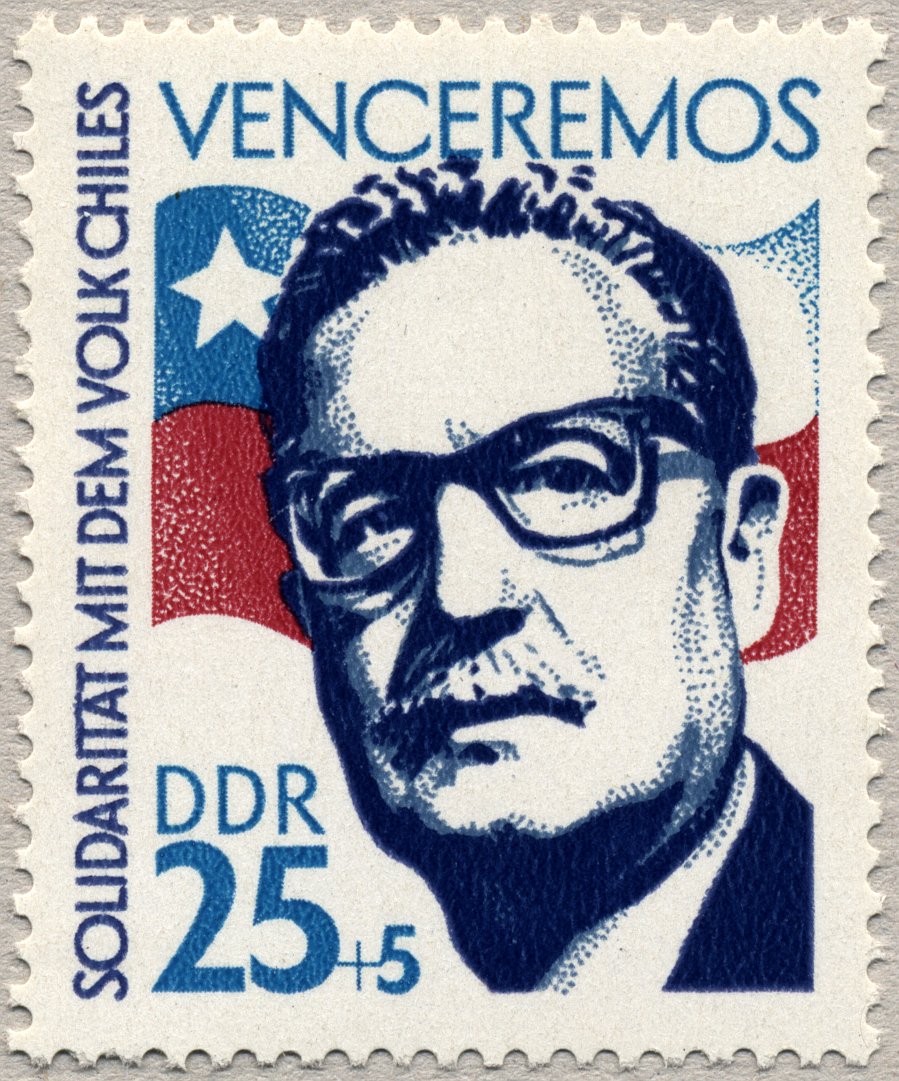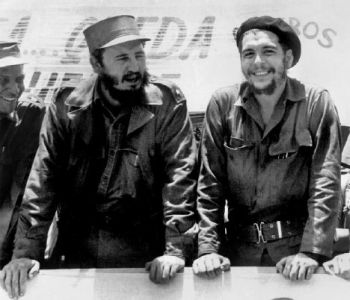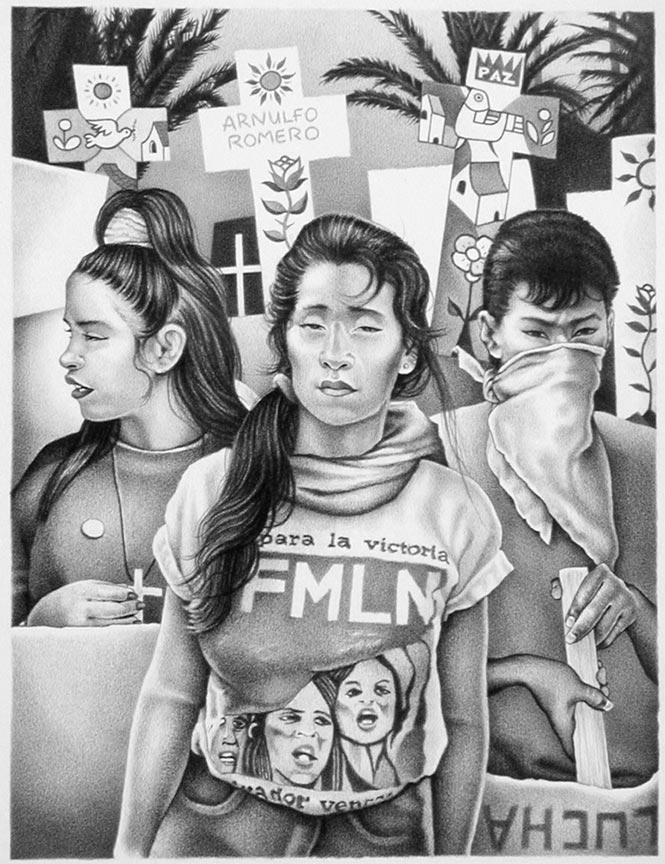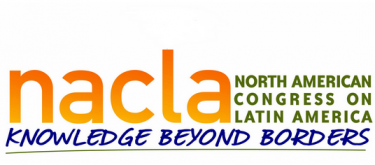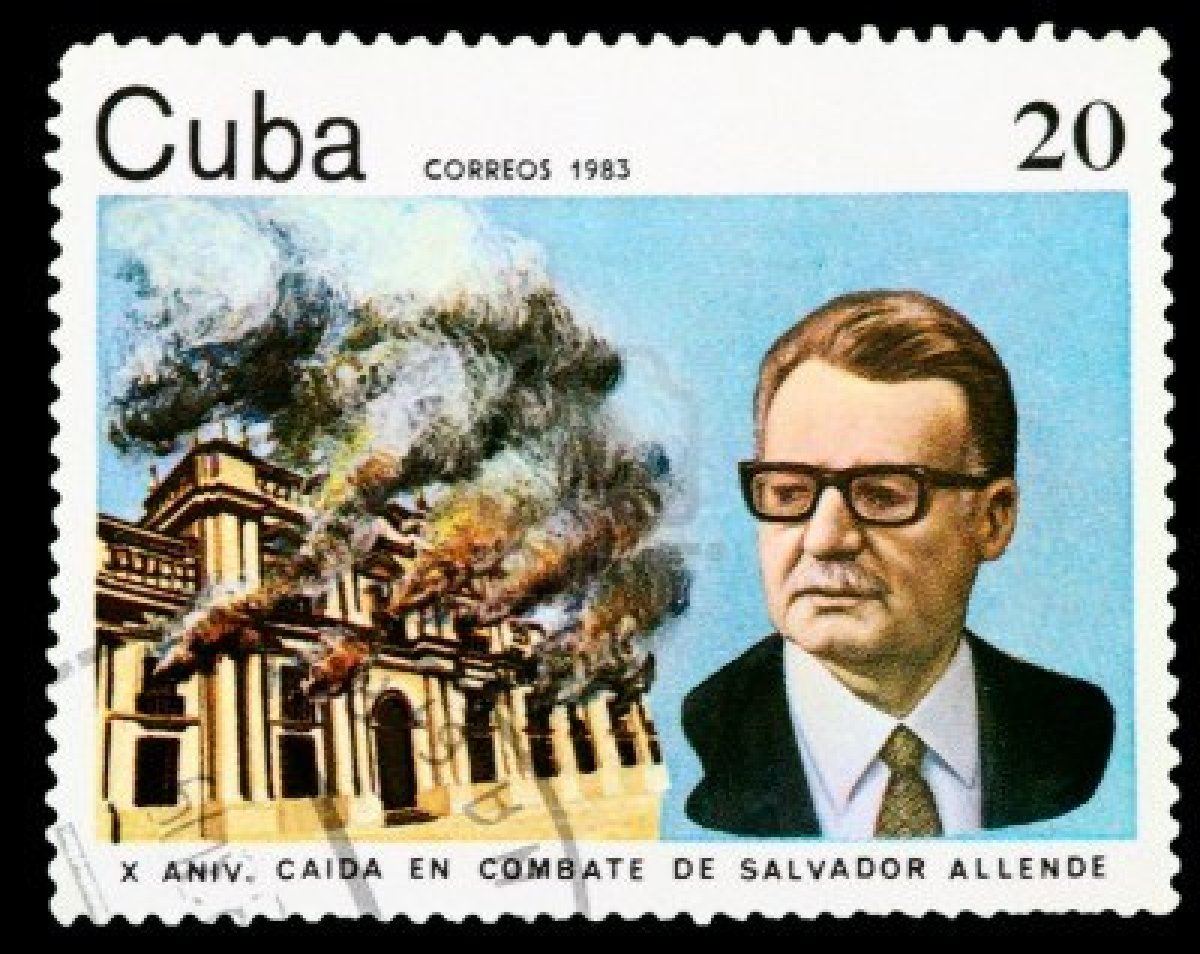Latin America
This collection contains materials from Central and South America and the Caribbean. Primary topics include Cuba and the Cuban Revolution, the Sandanista revolution in Nicaragua, the Nicaragua-Contra War, the Chilean struggle for independence and US imperialism.
Subcollections
-
Chile
This collection focuses primarily on the advent of the elected socialist Presidency of Salvador Allende in Chile, the 1973 fascist coup against Allende, engineered by the CIA and led by General Augusto Pinochet, and the subsequent repression of the left. -
Cuba
This collection primarily contains recordings focusing on various aspects of life in Cuba after their Communist Revolution. -
El Salvador
This collection contains materials related to the liberation struggle in El Salvador. -
Guatemala
This collection contains materials detailing the revolutionary struggles in Guatemala, the role of Guatemalan women during the revolution and the United States role in Guatemalan politics. -
NACLA
North American Congress on Latin America (NACLA) is an independent non-profit organization founded in 1966 to research the political economy of the Americas and US policy towards the region. -
Nicaragua
These materials focus primarily on the Sandanistas and their struggle for national liberation. -
Struggles in Latin America
This collection contains materials from throughout Latin America. Detailed interviews, poems and accounts from the 1973 revolution in Chile, the Sandinista Contra conflict in Nicaragua, and from revolutionary forces El Salvador are all included.
Documents
7 Documents Found
Call Number: LA 032AFormat: Cass AProducers: Sylvia Mulaly AguuirreProgram: El Contacto DirectoCollection: Struggles in Latin America
Spanish and English interview with Gloria Alonzo, National Committee to Free the Puerto Rican Political Prisoners, Bill Crossman, Friends of Elizam Escobar, and Enrique Chagoya, director Galeria de la Raza, on exhibit of art by Puerto Rican political prisoners. Continues 10 minutes on Side B.
 Fernando Alegria y Nelson Villagra
Fernando Alegria y Nelson Villagra
Date: 1/24/1979Call Number: LA 182Format: 1/4 7 1/2 ipsProducers: Casa de las AmericasCollection: Struggles in Latin America
Recital de poemas y canciones
0. Afinacion y acrordes de la guitarra, Nelson
1. Palabras introductorias de fernando
2. Fernando : Schneider - ragueo en mayor; Victor - la mayor y do; Letelier - SIN GUITARRA
3. La Companera - se continuan los acordes suaves para acompanar regreso
4. Fernando - Regreso
5. La Batalla en la Moneda guitarra se queda en tonada, en menor
5.1 Heridas traigo de muerte
6. El Congelado
7. El Comite de Resistencia
8. Me gustan todas las coses
9. El Ultraunitario
10. Fernando - Ponerle y no ponerle; rasgueo de tonada; Gallito de la pasion rasgueo de cueca
11. El Clandesta
Cuban poet Pablo Armando Fernandez reads in the SF Bay Area (possibly at Stanford University) in Spanish from "Libro de los Heroes".
Side A: Chile: Cantos Para La Resistencia (Chile: Songs for the Resistance)
Protest/political music from 1974 by the Chilean band, Karaxú and other various Chilean exiled artists from the 1973 Chilean coup d'état.
Side B: Pablo Neruda reading and commenting upon his poetry. Poems recited include “Nuevo canto de amor a Stalingrado,” “Lautaro,” “Americas,” “Oda a la Poesia,” etc. Some hissing.
Unedited recording session of Rosario Murillo’s poem “I’ve had to tear up all the daily papers” read by Nina Serrano, accompanied by Stephen Herrick on sax. Rosario Murillo is the director of the association of Sandanista Cultural workers. The poem is dedicated to her husband, Daniel Ortega, the President of Nicaragua.
Poetry reading followed by a short question and answer dialogue from Father Ernesto Cardenal of Nicaragua. Poems, including "The Big Bang", "Wall and Water Street" and other pieces, are read in Spanish with English translation. Cardenal is known as one of the greatest living Latin American poets today. He wrote during the Samoza dictatorship and the Sandanista overthrow of Samoza in 1979. Through his poems, Cardenal brings together science and poetry, science and mysticism, mysticism and revolution, and poetry and politics. He speaks out against oppression and searches to preserve the unity of creation through spiritual insight. In a short question and answer period at the end of the reading, Cardenal discusses how Nicaraguan culture and revolution are entertwined and how poetry is an expression of the revolution. Cardenal also talks about his priesthood as a lifelong commitment and of poetry as a religious practice.
Lawrence Ferlinghetti reading a poem about the Nicaraguan revolution.
7 Documents Found

